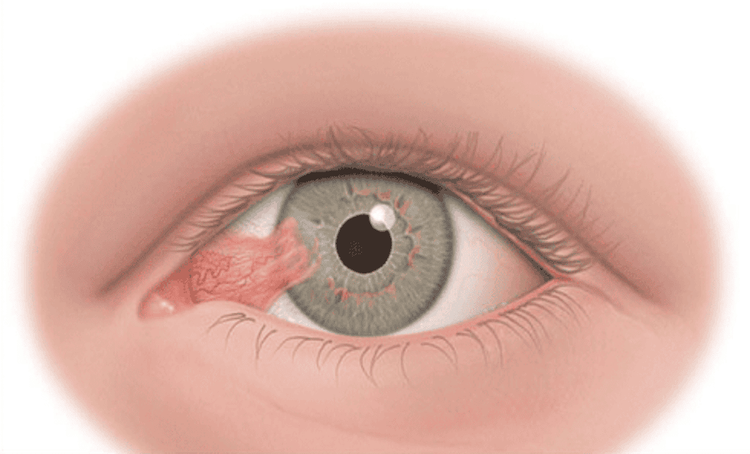This is an automatically translated article.
Syphilis is a sexually transmitted disease with very serious complications if not treated properly and promptly. The following article will help us learn to have an overview of this disease.
1. What is syphilis? What is neurosyphilis and visual syphilis?
Syphilis is a sexually transmitted disease caused by the bacterium Treponema pallidum. Through open wounds, scratches on the skin, bacteria will enter the body. The disease is spread mainly through sexual contact but can also be passed from mother to child.
Patients with neurosyphilis and optic syphilis do not automatically develop manifestations of the disease such as dementia or problems with vision, because the condition is present only in patients syphilis after many years without treatment.
2. How is syphilis transmitted?
You can get syphilis by direct contact with an open wound on the skin during sex. Sores can appear around the penis, vagina, anus or rectum...
A mother with syphilis can pass the infection on to her baby right before and after giving birth.

Giang mai có thể lây từ mẹ sang con
3. The stages of syphilis
Syphilis is divided into several stages with different signs and symptoms, including:
Primary stage: small sores appear around the penis, anus, vagina or rectum, some Rarely appear in or around the mouth. Most people will not notice this sore because it is usually painless and can heal on its own in 3-6 weeks with or without treatment. Once the ulcer disappears, you must continue to treat the disease to prevent it from getting worse. Secondary stage: At this stage, the person may have a rash, swollen lymph nodes, and fever. The rash will start on the trunk and gradually cover the whole body, including the palms and soles, without itching. Patients may experience fatigue, sore throat, headache, weight loss, swollen glands and muscle pain, or hair loss. In addition, patients at this stage may also experience pain in the mouth, vagina or anus. Symptoms at this stage may go away even if you don't get treatment. However, the disease can also progress to a latent stage if the treatment is not correct. Latent stage: if the patient is not treated properly and timely, the disease will progress to neurosyphilis and optic syphilis. At this stage, the sick person cannot infect others, but the mother can still pass the infection to her baby. Often at this stage, the person will not see any signs or symptoms of the disease. If left untreated, you can continue to carry syphilis for many years without any signs or symptoms. Triple syphilis: This is an extremely dangerous stage of syphilis. Once in the triad stage, many organs in the body can be affected and affected, including the heart, blood cells, brain, and nervous system. Triple syphilis is very serious, and signs and symptoms appear 10 to 30 years after infection. At this stage, the disease will damage organs and can lead to death, destroying the nervous system. Neurosyphilis and visual syphilis: When untreated, syphilis can cause damage to the brain, nervous system (neurosyphilis) or eyes (optical syphilis). This is the final stage of the disease.
4. Signs of neurosyphilis and visual syphilis
Patients with neurosyphilis and optic syphilis often have the following manifestations, including:
Joint pain, muscle pain, pain in the extremities Severe headache Unsteady walking Difficulty coordinating muscle movements Sex urinary incontinence Convulsions, paralysis or paralysis Mood swings Personality changes, poor judgment Hallucinations and delusions Poor memory Symptoms of visual syphilis include changes in vision sense and even blindness.

Giang mai thị giác có thể gây mù lòa
5. Diagnosis of syphilis
Usually the doctor will perform a blood test to detect syphilis. Your doctor will draw blood to test for RPR and TPHA.
Besides, the doctor can perform a test through the sores on the skin and mucous membranes of the patient to check for the presence of spirochetes of syphilis.
If a pregnant woman has syphilis, the doctor will conduct a test of amniotic fluid to see if the fetus has had the disease and the progress of the disease. Infected babies can be born without any signs or symptoms of the disease. However, if not treated right away, children can have serious health problems such as cataracts, deafness or epilepsy, and even death.
6. Syphilis treatment
Syphilis can be completely cured with the use of appropriate antibiotics. However, treatment may not reverse any damage caused by the disease. Patients with syphilis are usually treated with intravenous penicillin.
If the patient responds to the treatments, the symptoms of neurosyphilis and visual syphilis may improve to some extent.
Those who have had syphilis in the past, can still have a relapse, even after you have been completely cured.
7. Syphilis prevention
Anyone is at risk of syphilis through unprotected sex. To reduce your risk of catching the disease, you can follow some of the following guidelines:
Comprehensive health check Use condoms to prevent syphilis infection, avoid direct contact with sores. Vinmec International General Hospital offers a package of Examination and Screening for social diseases to help customers detect diseases early and have effective treatment and prevent dangerous complications. The screening package for social diseases at Vinmec is for all ages, both men and women.
When registering for the Social Disease Screening Package, customers will receive: Dermatology specialist examination; Perform tests such as: HIV Ab rapid test, Chlamydia rapid test, Treponema pallidium rapid test, qualitative and quantitative Treponema pallidum TPHA test, bacteriological smear test and staining fungal test soi...
To register for examination and treatment at Vinmec International General Hospital, you can contact Vinmec Health System nationwide, or register online HERE.
Reference source: Webmd.com; Cdc.gov
SEE ALSO:
Syphilis: Causes, transmission, signs to recognize Syphilis can be transmitted from mother to child through the placenta How is syphilis treated?













